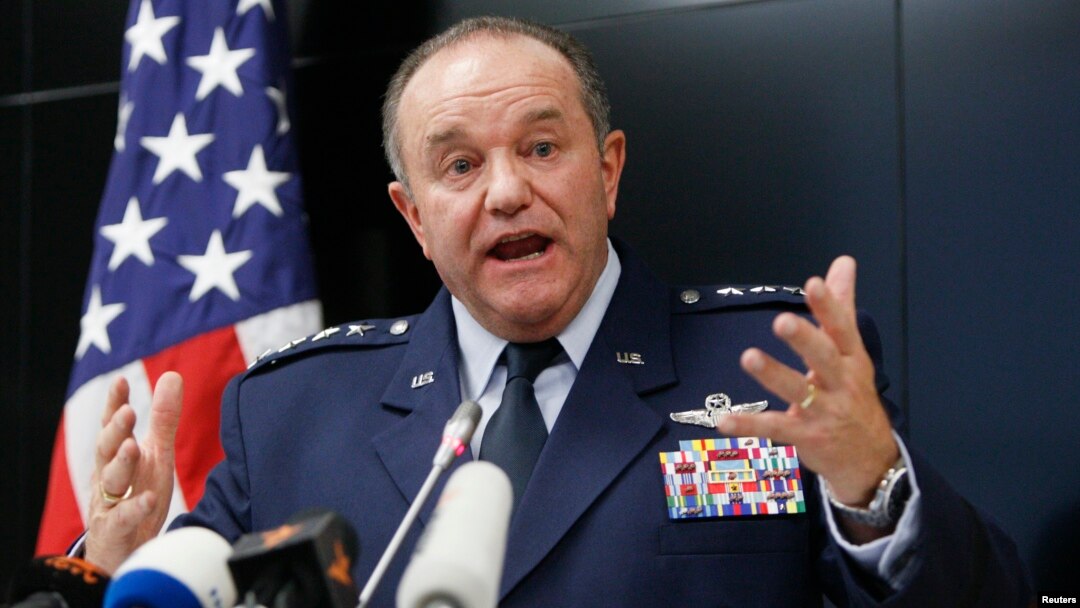The NATO supreme allied commander said Thursday that the alliance needs better military intelligence on the ground in eastern Ukraine, where he said Russian forces appeared to be fortifying military gains despite a two-month cease-fire.
U.S. Air Force General Philip Breedlove, testifying before the Senate Armed Services Committee in Washington, accused Moscow of supplying pro-Russian rebels in Ukraine's east with "heavy weapons, training and mentoring," as well as "artillery fire support and tactical- and operational-level air defense."
Breedlove also conceded "there are critical gaps in our collection and analysis" of intelligence in Ukraine's east, as intelligence demands grow in a "threat environment" that also includes civil war in Syria and instability in North Africa that have spawned the flood of migrants into Europe.
He attributed the gaps in large part to a dramatic decline in the gathering of Russia intelligence since the end of the Cold War, as Western intelligence assets have been redirected to wars in Iraq and Afghanistan.
Breedlove described the situation on the ground in Ukraine as "volatile and fragile" and said the actions of Russian forces in the region "are consistent with preparations for another offensive."
The general's testimony follows comments last week from NATO chief Jens Stoltenberg, who accused Moscow of moving more than 1,000 pieces of heavy military equipment to the Ukraine border, in violation of truce provisions that Moscow agreed to in February.
The Organization for Security and Co-operation in Europe, which is monitoring the cease-fire, said the violence is down markedly since the accord was signed in Minsk, Belarus.
But the United States says Russia now has its largest force on the border since October and has deployed the biggest number of air defense systems there since August.
Breedlove said Russia was seeking to tighten its grip on separatist fighters, bolstering its command and control "because there was disunity in some of the earlier attacks."
"We do see a very distinct Russian set of command and control in the eastern part of Ukraine," he said. "Command and control, air defense, support to artillery, all of these things increased ... making a more coherent, organized force out of the separatists."
The United States has so far declined to provide weapons to Ukraine, a move that advocates say could help end the conflict but opponents warn might escalate the war.
Breedlove said that no options should be taken off the table but that there was no consideration of giving Ukraine the kind of military might needed to defeat Russia.
"What we do believe is that we should consider changing the decision calculus of [Russian President Vladimir] Putin. That's what we look at," he said.
Still, Washington is keen to maintain solidarity with Europe, some of whose leaders, including German Chancellor Angela Merkel, strongly oppose arming Ukraine.
Breedlove said Putin was concerned about Western sanctions imposed against Russia over the Ukraine crisis, "and that may be affecting how he currently does things in eastern Ukraine."
"But we really have no way of knowing one way or another," Breedlove said.
Some information for this report came from Reuters.


